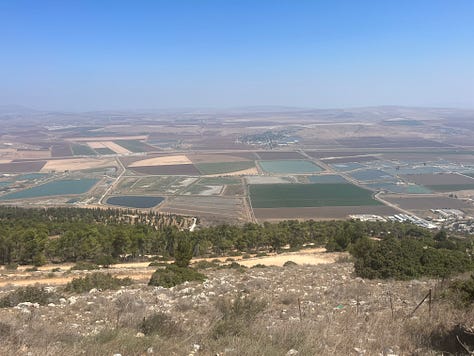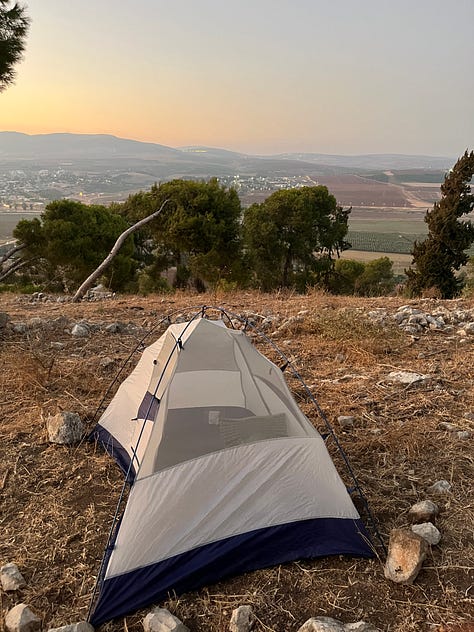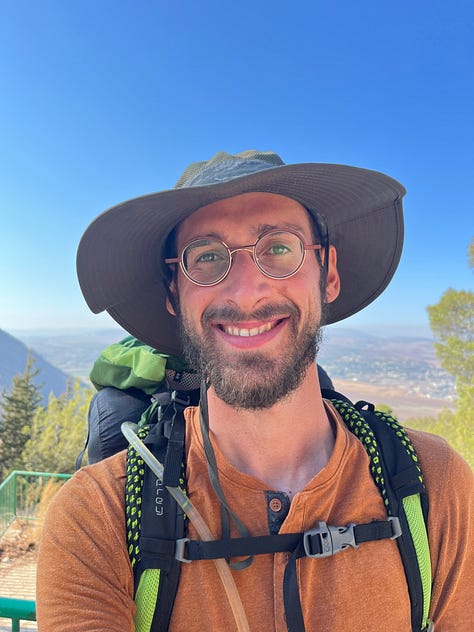
Dear Healthy Jew,
Feeling inspired feels great. Inspiration brings a sense of purpose, energy, validation, connection, confidence, and a little voice saying that because I’m so inspired, I must be something special.
For many years, I craved the rush of spiritual inspiration. Intense prayer, especially at holy times or in holy places, brought an ecstasy that surpassed any material pleasure. Studying exceptionally holy books, the ones so sacred that only a chosen few merit to partake from their piety, kindled a similar delight. I was whole, at peace from the bewilderment of my everyday life. I was flying high with God.
Inspiration Unraveled
Or so I thought. Time and pain have taught me that inspiration isn’t the bedrock of sincere spiritual living, for three reasons:
1. Uninspired Times
If my spiritual values and experiences are based on feeling inspired, what happens when I’m just not feeling it?
As the Jewish nation gears up for the upcoming Days of Awe, the cultural climate calls for heartfelt repentance and serious spiritual growth. But when the endless cues for inspiration don’t hit my heart, I wind up instead conflicted and confused: I should be feeling it, but am not. Instead of flying with God, I’m stressed out by the extra-long liturgy and extra-intense rituals.
2. The Next Day
When inspiration shows up, it works wonders – for a while. But at some point, the emotional stimulation wears off, just as the body clears out alcohol.
No wonder so many inspired Days of Awe resolutions, big and small, never lasted long: they were built on fleeting feelings and wishful thinking, so when reality came knocking, I was right back where I started. Or worse off: every new failure piled on more shame and hopelessness.
3. Self-serving
If I’m honest with myself, my motives in looking for inspiration aren’t to know and emulate God, but for me feel cradled, soothed, and worthy. My desperate search for an spiritual high isn’t much different than an addict’s craving for his drug. Although my high feels holier, in a perfect world it would be outlawed like heroin.
Waking Up
The good news is that sincere spiritual growth doesn’t require feeling inspired or any other forced emotions. Thankfully, his’orrerus, one Hebrew word sometimes mistranslated as inspiration, really means awakening.
All God asks of us is to wake up: to ourselves, others, and God. As Maimonides put it (Laws of Repentance 3:4):
Blowing the shofar holds an allusion: wake up, sleepers, from your slumber! Inventory your actions, return in repentance, and remember your Creator… Look at your souls, better your ways, abandon your wrong ways and thoughts.
Every morning, we wake up our bodies by pulling off the covers and jumping out of bed. If we choose to, we can also wake up our souls by stopping to check what values really matter, and to what degree we’re living by them. Waking up is a calm moment of awareness, not an intense storm of emotion.
Spiritual waking up involves taking honest looks at questions like these:
Is God really at the center of our lives, or are we just going through the motions – asleep to God’s world?
What have we received today from life - and what have we given in return?
What about us is right - and what is wrong?
What can we realistically do better?
Awakening is a very different experience than getting inspired. Approaching the Days of Awe - and every day of the year! - from its perspective solves our three problems.
1. No Feelings Required
His’orerus is an active choice, not an emotion - just like waking up in the morning. We don’t need to feel it any more than we need to feel like facing the new day. We just need to show up and wake up to who we are.
Even if we don’t like everything we see, waking up needn’t be stressful. Of course we’ll notice lots of things that need work, just as the new day’s tasks await us every morning. All awakenings are refreshing and opening.
2. Stay Awake - and Reawaken
Waking up is an event with an end, just like inspiration. But unlike inspiration, we can remain spiritually awake by regularly pausing to notice who we are and what we’re doing.
Even if we drift back asleep, as so commonly happens, we can always wake up again, and then again. That’s how spiritual growth happens: many moments of sincere accounting accumulate to expand the mind and heart until they reach other people and God.
3. Reaching Outward
Waking up happens when our eyes open and see the world. Similarly, spiritual awakening opens and expands our minds and hearts, connecting us with the world, God, and ourselves. Although calm and focused, it can often be uncomfortable. It’s nothing like the thrill of self-absorbed inspiration - with eyes tightly shut in fervent concentration. (Although, I’ll admit, closing the body’s eyes can help open the mind’s eye.)
Days of Awe
The stirring liturgy and rituals of the Days of Awe, and the Elul month introducing them, can serve two purposes: invoking inspiration and waking us up. Although the differences are subtle, it’s possible to discern our motives by asking ourselves questions like this:
Do I expect to feel something specific from doing or saying this?
Am I giving, or taking?
If I don’t do it perfectly, does that mean the whole thing was a failure?
How to I feel the next day? The next week?
Stopping to consider such questions is great his’orerus. That choice might bring us closer to God than screaming the most inspirational prayers together with thousands of inspired worshipers.
Do I mean that prayer and study should be cold and heartless? Isn’t our liturgy loaded with the inspired writings of King David and generations of prophets and Sages?
Yes, emotionally connecting to serving God is a good thing. If you’d like, you can even call it inspiration. I’ll still be your friend. But inspiration isn’t the basis or essence of spiritual Jewish living. Inspiration must remain optional, a natural byproduct of sincere service.
Oftentimes the feelings don’t come; a thousand things can block us imperfect human beings from emotionally connecting to spiritual perfection. That’s fine. Our motive in showing up for God, ourselves, and others wasn’t to grab a high, but because those are the choices we want to make.
Waking Up Relaxed
The hallmark of genuine his’orerus is a peaceful quiet that sharply contrasts with the stressed intensity of forced inspiration.
Instead of inspiring ourselves to become someone different, we’re hard at work looking at who we already are and how we can better choose what to do next. Instead of poring over inspirational books of abstract spiritual concepts, we’re taking a honest appraisal of our physical lives on earth. (There’s some great books for that too!)
Anything which helps us clarify and connect is great grist for the mill of awakening – particularly purposeful relaxation, because there’s no better way to foster attention than letting go of the noise and distractions of life’s daily work.
The liturgy and rituals of the Days of Awe are important. But no less important is opening our hearts and minds, perhaps even if that means reciting a few less prayers and poems so that we might pay attention and care about the ones we do say.1
For me, an integral part of preparing for the Days of Awe is purposeful relaxation. Specifically, I make sure to go on long hikes in Natural Israel. Stepping away from the sleeping rote of city life awakens me to the world’s vastness and God’s place in life – or, more precisely, that God is life. People call it vacation, but sincere journeying is anything but an escape.
Last week I awakened by walking for a few days up, over, and back down the Gilboa Mountain. (Much more on my journey another day.)



On my last morning out, after praying next to a spring at the mountain’s foot, I scribbled the first draft of this article.
One Suggestion: Invest some time in looking at the questions above - if possible, while walking or sitting alone in the natural world. Be well, even in Elul. No, especially in Elul.
One Question: Take an honest look at what the Days of Awe are for you. Are they a time for forced inspiration, or for waking up to yourself, God, and other people?
Looking for more waking-up strategies? Check out here:
Thank you for reading Healthy Jew.
Here are 2 great paths to continue the journey:
Also check out this intro and index to explore hundreds of posts about our 3 Healthy Jew topics: Wellness with Wisdom, Land of Life (Israel), and Sensible Spirituality.
Finally, always feel free to reach out here with any comments, questions, or complaints:
I look forward to hearing from you!
Be well,
Rabbi Shmuel Chaim Naiman
Notice that the Days of Awe’s core biblical and Rabbinical commandments constitute an unusually small fraction of the customary liturgy and rituals. To step firmly inside Torah law, it’s “only” necessary to observe the holidays of Rosh Hashonoh and Yom Kippur (including their festive meals!), hear the shofar (on R”H), recite the special Mussaf prayer (of R”H), fast for a day (on Y”K), and sincerely repent and confess to God (on Y”K).
Does that mean that everything else is extra credit? Not at all. Jewish customs are an integral part of Torah tradition – but as customs, not inflexible requirements. Competent rabbis exempt individuals from observing customs when the cost in physical or emotional health defeat the ritual’s purpose.











